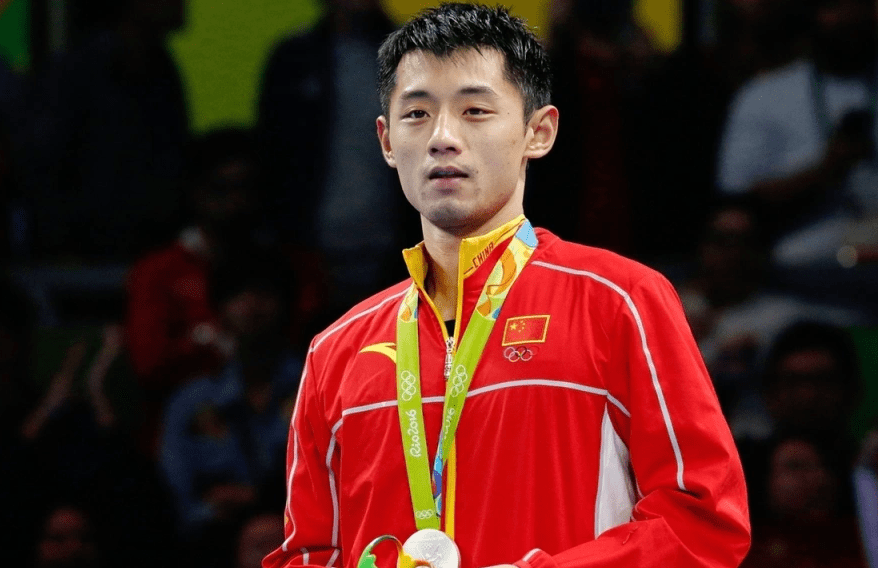"Once criticized, now praised - what does this change in attitude signify?" Zhang Jike's recent evaluation of Wang Chuqin has ignited a storm of discussion. Known for his straightforwardness in the table tennis world as the "Tibetan Mastiff," why has his opinion of the younger generation changed so drastically in just a few months? The conversation ranges from competition to mentality and on to heritage, striking at the heart of the matter, no wonder it has sparked a frenzy of online discussion.

If one word were to describe Zhang Jike's career, it would be "ups and downs." From winning both singles and team championships at the 2012 London Olympics to being plagued by injuries in the latter half of his career, his story is as thrilling as a roller coaster. It is precisely this experience of "climbing from the depths to the peak" that has made Zhang Jike an inspiring idol in the hearts of countless fans.

After retiring, his life did not return to calm. On the contrary, he quickly seized the pulse of the flow, becoming a brand spokesperson, internet celebrity, and table tennis coach. In live streams, he is humorous and witty; in online courses, he imparts his knowledge generously. His successful transformation not only proves the limitless possibilities for athletes after retirement but also provides a clear career path for those who follow. Some even jokingly say, "The Tibetan Mastiff has transformed into a versatile talent, busier than when he was playing!"

Compared to Zhang Jike's "spectacular" career, Wang Chuqin's professional trajectory appears more "low-key and reserved," yet it is not lacking in highlights. His loss in the singles event at the Tokyo Olympics once caused regret, but soon after, he demonstrated remarkable mental fortitude and competitive form in mixed doubles and team events, quickly earning the approval of the coaching staff and fans.

Now, Wang Chuqin is making great strides in the China Table Tennis Super League, leading his team to launch an assault on the championship. This tenacity of rising from the troughs cannot help but remind people of the former Zhang Jike. Perhaps it is precisely because of this that Zhang Jike recently used his Olympic experiences to encourage Wang Chuqin and praised him as the future mainstay of the Chinese table tennis team.

Behind the names of Zhang Jike and Wang Chuqin lie two completely different paths of growth. Zhang Jike is known as the "Tibetan Mastiff," and his career has been marked by intense ups and downs - from the glory of world championships to the torment of injuries and dips in form. On the other hand, Wang Chuqin is a more "stable" player, growing steadily from a promising young talent to a pillar of the national team.

This difference in paths gives Zhang Jike's comments on Wang Chuqin greater weight. He contrasts his own gains and losses at the Olympics with Wang Chuqin's performance, both reflecting on his own growth and pointing the way for the younger generation. In response to these evaluations, Wang Chuqin chose to respond with his performance in competitions, and this attitude of "letting actions speak louder than words" undoubtedly won him numerous fans.

When it comes to the heritage of Chinese table tennis, one cannot fail to mention Liu Guoliang. As Zhang Jike's mentor, he played a key role in Zhang Jike's career. Now, Liu Guoliang's cultivation of young players reflects the spirit of "old bringing up new" within the Chinese table tennis team.

Wang Chuqin's growth is inseparable from the competition and cooperation with teammates like Fan Zhendong. They are both opponents and allies in domestic and international competitions, and this "double identity" not only promotes personal progress but also keeps Chinese table tennis at the forefront internationally. This team culture is one of the main reasons why the national table tennis team remains at the top of the world.
Why has this evaluation caused such a big stir? On the surface, it is Zhang Jike's affirmation of the younger generation, but on a deeper level, it is more like a spiritual dialogue between two generations of table tennis players. An athlete's career is full of challenges, facing not only competitive pressures but also the courage to reshape oneself in failure. Zhang Jike's affirmation of Wang Chuqin is a high recognition of this courage.
Moreover, this evaluation has sparked more discussions about the psychological qualities of athletes. Experts generally believe that the growth of professional athletes is inseparable from strong psychological resilience. Wang Chuqin's ability to quickly adjust his state after defeat is the best embodiment of this resilience.
Although Wang Chuqin's current performance is commendable, there is still significant room for breakthroughs in singles events. He needs to continuously improve technical details while taking his psychological development to the next level. For this young player, the road ahead may still be thorny, but as Zhang Jike said, as long as there is light in the heart, the path will always lead further.
Zhang Jike and Wang Chuqin's "long-distance interaction" this time is not only a dialogue between two generations of athletes but also a passing on of sportsmanship. Will Wang Chuqin be able to take up the banner of his predecessors and continue to write his own legend on the future court? Perhaps the answer has already quietly revealed itself in his determined gaze.
(Disclaimer) The processes and images described in the article all come from the Internet. This article aims to promote positive social energy without vulgar or inappropriate guidance. If there are any copyright or personal infringement issues, please contact us in time, and we will delete the content immediately! If there are any questionable parts of the event, they will be deleted or modified immediately after contact.